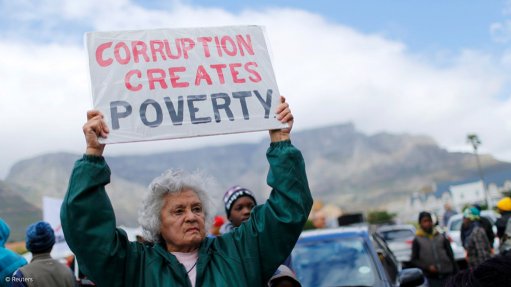Ructions in the Horn of Africa
On New Year’s Day, when much of the world was still in festive mood, Somaliland and landlocked Ethiopia announced that they had inked a memorandum of understanding (MoU) in terms of which the former will grant the latter access to the sea for commercial traffic through an unnamed port. Moreover, Ethiopia’s navy will have the right to lease a section of the Somaliland coastline. The quid pro quo for Somaliland will be an equity stake in Ethiopian Airlines, reportedly the only profitable national carrier in Africa.
You read right: the deal is between Somaliland – not Somalia – and Ethiopia. Somaliland is an autonomous region in northern Somalia that declared itself independent in 1991, the same year Eritrea seceded from Ethiopia, rendering the latter a landlocked country.
Whereas Eritrea was almost immediately accepted into the community of nations, becoming the United Nations’ 182nd member in May 1993, no country or multilateral organisation has formally recognised Somaliland. Be that as it may, it has been self-governing for the past 33 years, holds elections regularly, issues its own passports and prints its own currency. Unlike Somalia, a failed State that has been crippled by a protracted civil war pitting government forces against the Al-Shabaab Islamist insurgency, Somaliland has been peaceful and stable for much of its existence.
Although no foreign government recognises Somaliland as an independent State, many regard it as separate from Somalia. Some, such as France, the UK and the US, as well as the European Union, have even sent delegations to observe its elections.
If the Somaliland government is to be believed, Ethiopia intends going further than the Europeans and the Americans – it will recognise Somaliland’s sovereignty as part of the MoU announced on January 1, the contents of which have not been made public. The Ethiopians have neither denied nor confirmed that this is indeed the case.
Predictably, that Ethiopia has concluded a bilateral deal with an entity it considers to be part of its territory – which it intends to recognise as an independent State – has incensed Somalia, whose President, Hassan Sheikh Mohamud, has called on his compatriots to “prepare for the defence of our homeland”, adding: “We are pursuing all diplomatic options and I think Ethiopia will come to its senses, but we are ready for war if [Ethiopian Prime Minister] Abiy Ahmed wants a war.” Rallies to denounce the deal have also been held in Mogadishu, the Somali capital.
The Ethiopia-Somaliland MoU has also faced opposition from the Arab League, which was due to convene a virtual meeting late last week to discuss this development. Egypt, a key member of the league, has voiced strong opposition to Ethiopian military presence in the Red Sea, which, it believes, could threaten its interests in the waterway. Cairo is said to be determined to derail the deal primarily through efforts to boost Somalia’s military and logistical capabilities to enable it to deal with any eventuality.
But it is not only countries in North Africa and the Horn of Africa that are concerned about the New Year’s Day MoU. The Americans too are worried. In a media briefing last week, US National Security Council strategic communications director John Kirby said the council feared that the arrangement could disrupt efforts by Somalia, other African countries, and regional and international partners to stamp out Al-Shabaab, which he described as continuing to be “a viable threat in the region, without question”.
The fallout got me thinking about where Somaliland would be today had its decades- long quest to be recognised as a sovereign nation been heeded. My view is that this is a reasonable aspiration. Somaliland and Somalia have distinct histories – the former was a British protectorate until 1960, whereas the latter is a former Italian colony, and their union from 1961 to 1991, when Somaliland announced it was seceding, was a bumpy one.
Somaliland’s lack of recognition by African countries is attributable to the African Union’s longstanding policy against redrawing colonial boundaries. Without African recognition, Western governments will not recognise it either. This means Somaliland struggles to attract investment and is cut off from international finance, which is mostly channelled through Mogadishu.
Article Enquiry
Email Article
Save Article
Feedback
To advertise email advertising@creamermedia.co.za or click here
Comments
Announcements
What's On
Subscribe to improve your user experience...
Option 1 (equivalent of R125 a month):
Receive a weekly copy of Creamer Media's Engineering News & Mining Weekly magazine
(print copy for those in South Africa and e-magazine for those outside of South Africa)
Receive daily email newsletters
Access to full search results
Access archive of magazine back copies
Access to Projects in Progress
Access to ONE Research Report of your choice in PDF format
Option 2 (equivalent of R375 a month):
All benefits from Option 1
PLUS
Access to Creamer Media's Research Channel Africa for ALL Research Reports, in PDF format, on various industrial and mining sectors
including Electricity; Water; Energy Transition; Hydrogen; Roads, Rail and Ports; Coal; Gold; Platinum; Battery Metals; etc.
Already a subscriber?
Forgotten your password?
Receive weekly copy of Creamer Media's Engineering News & Mining Weekly magazine (print copy for those in South Africa and e-magazine for those outside of South Africa)
➕
Recieve daily email newsletters
➕
Access to full search results
➕
Access archive of magazine back copies
➕
Access to Projects in Progress
➕
Access to ONE Research Report of your choice in PDF format
RESEARCH CHANNEL AFRICA
R4500 (equivalent of R375 a month)
SUBSCRIBEAll benefits from Option 1
➕
Access to Creamer Media's Research Channel Africa for ALL Research Reports on various industrial and mining sectors, in PDF format, including on:
Electricity
➕
Water
➕
Energy Transition
➕
Hydrogen
➕
Roads, Rail and Ports
➕
Coal
➕
Gold
➕
Platinum
➕
Battery Metals
➕
etc.
Receive all benefits from Option 1 or Option 2 delivered to numerous people at your company
➕
Multiple User names and Passwords for simultaneous log-ins
➕
Intranet integration access to all in your organisation


















